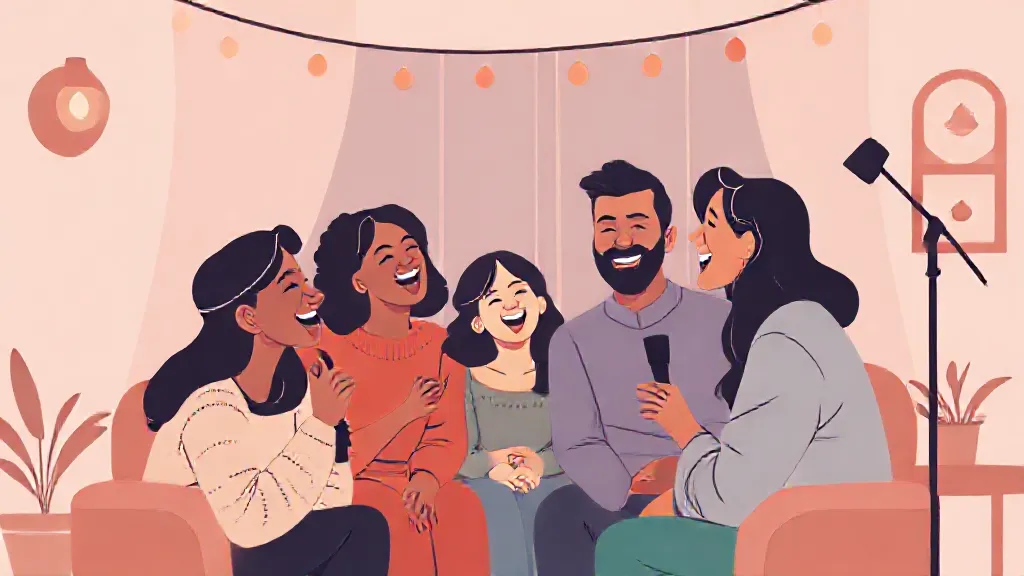In times of crisis and hardship, people often seek solace in various forms of entertainment, with comedy standing out as a particularly effective source of relief. The ability of humor to lighten the mood and provide a temporary escape from reality has been recognized throughout history, from ancient theatrical performances to modern stand-up comedy specials. This article delves into the multifaceted role comedy plays in helping individuals cope with difficult situations, exploring its psychological benefits, historical significance, and cultural impact.
The Psychological Benefits of Laughter
Laughter is often described as the best medicine, and for good reason. Psychologically, humor can reduce stress, enhance mood, and promote a sense of well-being. When people laugh, their brains release endorphins, which are natural feel-good chemicals.
This biochemical reaction can provide immediate relief from feelings of anxiety or sadness. Moreover, humor can serve as a coping mechanism, allowing individuals to reframe their circumstances and view them from a lighter perspective. For instance, during the COVID-19 pandemic, many turned to comedy shows and online skits to alleviate the tension and uncertainty surrounding their lives.
Historical Context of Comedy in Tough Times
Throughout history, comedy has often emerged as a response to societal challenges. During the Great Depression, for example, comedians like Charlie Chaplin and the Marx Brothers used humor to address the struggles of everyday life, providing audiences with a much-needed distraction and a sense of hope. Similarly, the post-World War II era saw the rise of sitcoms that tackled serious issues with a comedic twist, reflecting the resilience of the human spirit in the face of adversity.
This historical reliance on comedy illustrates its enduring power as a tool for coping with hardship.
Cultural Reflections in Comedy
Comedy often mirrors the societal challenges of its time, making it a valuable cultural artifact. Comedians and writers frequently draw upon current events, social issues, and personal experiences to create content that resonates with audiences.
This connection allows individuals to feel seen and understood, fostering a sense of community. For example, comedians like Jon Stewart and John Oliver have used their platforms to address political and social injustices, blending humor with critical commentary. This not only entertains but also encourages audiences to engage with difficult topics in a more approachable way.
The Role of Comedy in Social Connection
In challenging times, social connection becomes crucial for emotional support. Comedy serves as a communal experience, bringing people together through shared laughter. Whether it's watching a comedy special with friends or participating in a stand-up show, humor creates bonds and fosters a sense of belonging.
This social aspect of comedy can be particularly beneficial during isolating periods, such as during lockdowns or natural disasters, where individuals might feel cut off from their usual support networks.
The Therapeutic Use of Humor
Therapists and mental health professionals have long recognized the therapeutic potential of humor. Techniques such as laughter therapy or humor therapy are increasingly being integrated into treatment plans for various mental health issues.
By encouraging patients to engage with humor, therapists can help them develop resilience and improve their coping strategies. This approach not only enhances the therapeutic process but also empowers individuals to find joy even in their darkest moments.
Digital Comedy: A Modern Lifeline
The rise of digital platforms has transformed the way comedy is consumed, making it more accessible than ever.
During the pandemic, streaming services and social media became primary sources of comedic content, allowing people to connect with their favorite comedians from the safety of their homes. This digital shift has not only provided entertainment but has also created virtual communities where individuals can share their experiences and find comfort in collective laughter.
The Future of Comedy in Times of Crisis
As society continues to face various challenges, the role of comedy will likely evolve.
The resilience of humor as a coping mechanism suggests that it will remain a vital part of our cultural landscape. New forms of comedy, including podcasts and web series, are emerging to address contemporary issues, ensuring that humor remains relevant and accessible. As we navigate future hardships, the ability of comedy to provide relief and foster connection will undoubtedly play a crucial role in our collective healing.
Conclusion: Laughter as a Lifeline
In conclusion, comedy offers a unique and powerful means of relief during tough times. Its psychological benefits, historical significance, and cultural relevance highlight its importance as a coping mechanism. As individuals and communities continue to face challenges, embracing humor can provide not only a temporary escape but also a pathway to resilience and connection.
Ultimately, laughter serves as a lifeline, reminding us of our shared humanity and the enduring power of joy in the face of adversity.
